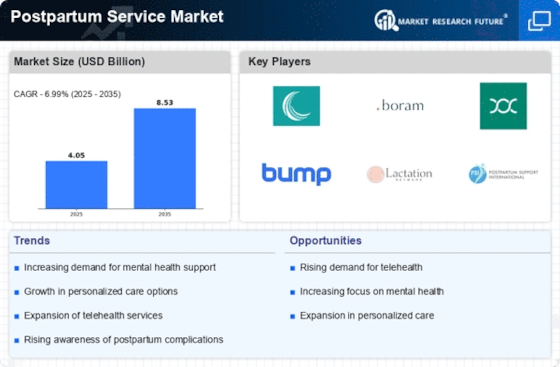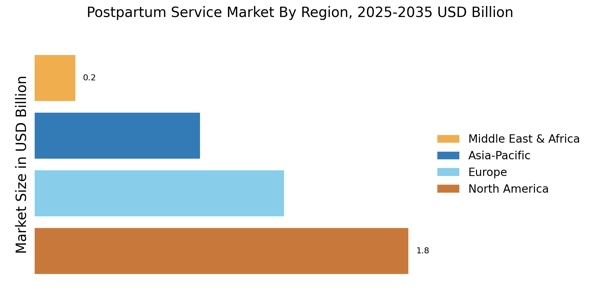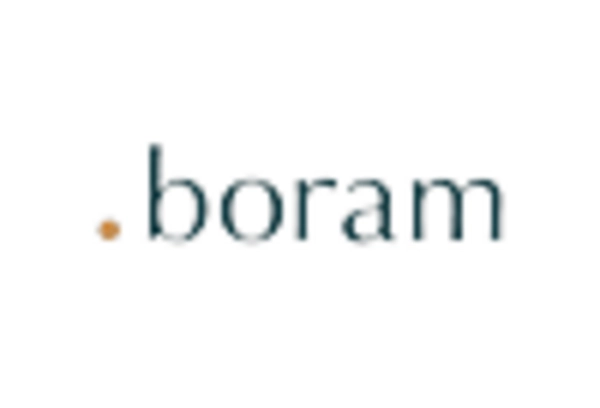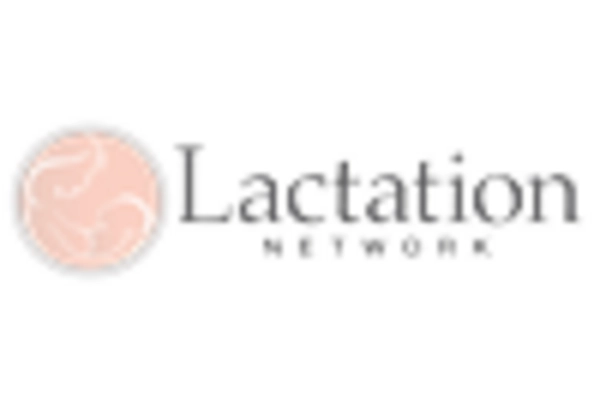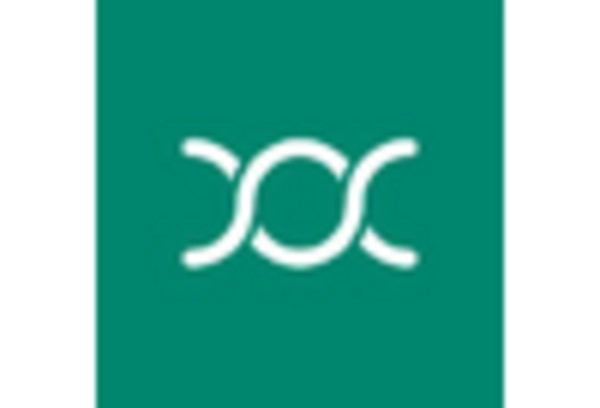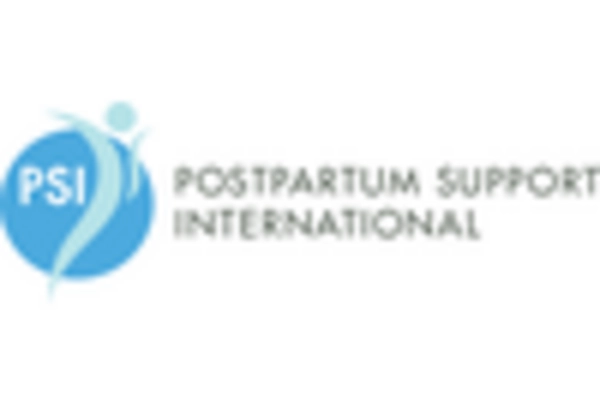Supportive Community Networks
The establishment of supportive community networks is emerging as a vital driver for the Postpartum Service Market. These networks provide new mothers with access to resources, information, and emotional support, which are essential during the postpartum period. Community initiatives, such as local support groups and online forums, are gaining traction, fostering connections among mothers. Research indicates that participation in such networks can significantly reduce feelings of isolation and improve mental health outcomes. As these community-driven efforts continue to proliferate, they are likely to enhance the overall landscape of postpartum services, creating a more supportive environment for new mothers.
Rising Demand for Personalized Care
The demand for personalized care in the Postpartum Service Market is on the rise, as new mothers seek tailored solutions that address their unique needs. This trend is driven by a growing recognition that each postpartum experience is distinct, necessitating individualized support. Healthcare providers are increasingly adopting personalized care models, which may include customized wellness plans and one-on-one counseling sessions. Market data indicates that services offering personalized care have seen a growth rate of approximately 20% in recent years. This shift towards individualized care is likely to enhance patient satisfaction and foster loyalty, thereby contributing to the overall growth of the market.
Growing Awareness of Postpartum Health
The increasing awareness surrounding postpartum health issues is a pivotal driver for the Postpartum Service Market. As more individuals recognize the importance of mental and physical well-being after childbirth, demand for specialized services is likely to rise. Reports indicate that approximately 15% of women experience postpartum depression, which underscores the necessity for targeted interventions. This heightened awareness is fostering a culture where postpartum care is prioritized, leading to an expansion of services tailored to new mothers. Consequently, healthcare providers are adapting their offerings to meet this growing need, which may result in a more robust market landscape.
Increased Investment in Maternal Health
Investment in maternal health initiatives is a crucial driver for the Postpartum Service Market. Governments and private organizations are recognizing the need for comprehensive postpartum care, leading to increased funding and resources allocated to this sector. For instance, recent initiatives have seen funding increases of up to 25% for maternal health programs, which directly impacts the availability and quality of postpartum services. This financial support is likely to enhance service offerings, improve accessibility, and ultimately lead to better health outcomes for mothers. As investment continues to grow, the market is expected to expand, reflecting a commitment to maternal well-being.
Technological Advancements in Healthcare
Technological advancements are transforming the Postpartum Service Market, enabling more efficient and accessible care solutions. Innovations such as mobile health applications and telehealth platforms facilitate remote consultations, allowing new mothers to receive support without the constraints of travel. Data suggests that telehealth services have seen a significant uptick, with a reported increase of over 30% in usage among postpartum patients. These technologies not only enhance the delivery of care but also empower mothers to engage actively in their health management. As technology continues to evolve, it is likely to play an increasingly central role in shaping the future of postpartum services.


